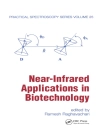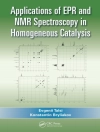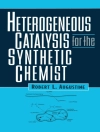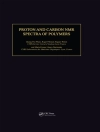Sustainable Resource Management
Learn how current technologies can be used to recover and reuse waste products to reduce environmental damage and pollution
In this two-volume set, Sustainable Resource Management: Technologies for Recovery and Reuse of Energy and Waste Materials delivers a compelling argument for the importance of the widespread adoption of a holistic approach to enhanced water, energy, and waste management practices. Increased population and economic growth, urbanization, and industrialization have put sustained pressure on the world’s environment, and this book demonstrates how to use organics, nutrients, and thermal heat to better manage wastewater and solid waste to deal with that reality.
The book discusses basic scientific principles and recent technological advances in current strategies for resource recovery from waste products. It also presents solutions to pressing problems associated with energy production during waste management and treatment, as well as the health impacts created by improper waste disposal and pollution. Finally, the book discusses the potential and feasibility of turning waste products into resources.
Readers will also enjoy:
- A thorough introduction and overview to resource recovery and reuse for sustainable futures
- An exploration of hydrothermal liquefaction of food waste, including the technology’s use as a potential resource recovery strategy
- A treatment of resource recovery and recycling from livestock manure, including the current state of the technology and future prospects and challenges
- A discussion of the removal and recovery of nutrients using low-cost adsorbents from single-component and multi-component adsorption systems
Perfect for water and environmental chemists, engineers, biotechnologists, and food chemists, Sustainable Resource Management also belongs on the bookshelves of environmental officers and consultants, chemists in private industry, and graduate students taking programs in environmental engineering, ecology, or other sustainability related fields.
Daftar Isi
Volume 1
Preface xix
1 Resource Recovery and Reuse for Sustainable Future Introduction and Overview 1
Wenshan Guo, Huu Hao Ngo, Lijuan Deng, Rao Y. Surampalli, and Tian C. Zhang
1.1 Introduction 1
1.2 Background 2
1.2.1 Hierarchy of Resource Use 2
1.2.2 Analyzing the Needs for Resource and Energy Recovery and Reuse 2
1.2.2.1 Population Growth 2
1.2.2.2 Resource Scarcity 4
1.2.2.3 Environmental Impacts 4
1.2.2.4 Economical Aspect 4
1.3 Current Status of Resource Recovery and Reuse 5
1.3.1 Wastewater 5
1.3.1.1 Nutrient Recovery 6
1.3.1.2 Organic Carbon Recovery 6
1.3.1.3 Heat Recovery 7
1.3.2 Waste 7
1.4 Research Needs 9
1.4.1 Development of Novel Technologies 9
1.4.2 Social and Economic Feasibility of Resource Recovery and Reuse 9
1.4.3 Development of Internationally Coordinated Framework and Strategy 10
1.5 Book Overview 10
References 17
2 Hydrothermal Liquefaction of Food Waste: A Potential Resource Recovery Strategy 21
Ranaprathap Katakojwala, Hari Shankar Kopperi, Althuri Avanthi, and S. Venkata Mohan
2.1 Introduction 21
2.1.1 Global Food Waste Production 22
2.1.2 Conventional Food Waste Management Practices 23
2.1.2.1 Land Filling 23
2.1.2.2 Fertilizer/Animal Feed 23
2.1.2.3 Incineration 23
2.1.2.4 Composting 24
2.1.3 Advanced Food Waste Management Methods 24
2.1.3.1 Acidogenesis 24
2.1.3.2 Solventogenesis 24
2.1.3.3 Biodiesel 25
2.1.3.4 Bioplastics 26
2.2 Significance of Hydrothermal Liquefaction of Food Waste 26
2.2.1 HTL Reactor Operation 27
2.2.2 Isothermal HTL and Fast HTL 30
2.2.3 HTL Products 30
2.2.4 Greenhouse Gas Emissions 31
2.3 Factors Influencing HTL During FW Treatment 32
2.3.1 Temperature 34
2.3.2 Reaction Time 35
2.3.3 Solid-to-Solvent Ratio 35
2.3.4 Composition of Food Waste 36
2.3.5 Catalyst Concentration 36
2.4 HTL of Food Waste: Case Studies 37
2.5 Conclusions and Future Scope 39
Acknowledgement 40
References 40
3 Coping with Change: (Re) Evolution of Waste Management in Local Authorities in England 47
Pauline Deutz and Anne Kildunne
3.1 Introduction 47
3.2 Sustainability Transitions Literature 48
3.3 Waste Management in England 51
3.4 Research Design and Methods 52
3.4.1 Research Design 53
3.4.2 Methods 53
3.4.3 Selection of Interviewees 54
3.4.4 Secondary Data 58
3.5 Results and Discussion 58
3.5.1 English Waste in the Context of the EU 58
3.5.2 Influences in the UK Context for LAs 64
3.5.3 Implementation of the 2000 Waste Strategy 66
3.5.3.1 LA Implementation of Waste Policy 67
3.5.3.2 Targets 70
3.5.3.3 Financial Instruments 70
3.5.3.4 Regional Governance 72
3.5.4 Local Authorities and the Public 72
3.5.5 Legacy of the Strategy 74
3.6 Conclusions 75
Acknowledgements 77
References 77
4 Hydrothermal Liquefaction of Lignocellulosic Biomass for Bioenergy Production 83
Huihui Chen, Gang Luo, and Shicheng Zhang
4.1 Introduction 83
4.2 Composition of Lignocellulosic Biomass and their Degradation in HTL Processes 85
4.2.1 Composition of Lignocellulosic Biomass 85
4.2.2 Brief Review on the Development of HTL Technology 85
4.2.3 Main Components Degradation of the Lignocellulosic Biomass During HTL 87
4.2.3.1 Cellulose and its Degradation in HTL Processes 87
4.2.3.2 Hemicellulose and its Degradation in HTC Process 88
4.2.3.3 Lignin and its Degradation in HTC Processes 88
4.3 Research Status in HTL of Lignocellulosic Biomass 90
4.3.1 Products Description 90
4.3.1.1 Bio-oil 90
4.3.1.2 Solid Residue 90
4.3.1.3 Other By-products 91
4.3.2 Operating Parameters for Bio-oil Production by HTL 91
4.3.2.1 Bio-oil 92
4.3.2.2 Temperature 93
4.3.2.3 Heating Rate 93
4.3.2.4 Residence Time 94
4.3.2.5 Pressure 94
4.3.2.6 Catalysts 95
4.3.2.7 Liquid-to-Solid Ratio 96
4.4 Limitations and Prospects for Bioenergy Production from Lignocellulosic Biomass by HTL 97
4.4.1 Poor Quality of Crude Bio-oil 97
4.4.2 Aqueous By-products Utilization 97
4.4.3 Prospects 98
4.5 Conclusion and Future Work 98
References 99
5 Resource Recovery-Oriented Sanitation and Sustainable Human Excreta Management 109
Sudheer Salana, Tuhin Banerji, Aman Kumar, Ekta Singh, and Sunil Kumar
5.1 Introduction 109
5.2 Present Scenario 111
5.2.1 Ecological Sanitation 112
5.2.1.1 Rottebehaelter and Centrifugal Separation Sanitation 113
5.2.1.2 Biofilters, Vermicomposting Units, Bag Toilets 114
5.2.2 Failure, Success, and Lessons 115
5.3 Resource Recovery Options in Rural Areas 116
5.3.1 Nutrient Recovery from Urine 117
5.3.2 Anaerobic Digestion or Composting? 119
5.3.3 Community-Scale or Household Models? 121
5.4 Resource Recovery Sanitation in Urban Context 121
5.4.1 Energy Matters 121
5.4.2 Johkasou Systems 123
5.4.3 Possibilities of Industrial-Scale Units 124
5.5 Life Cycle Assessment of Sanitation Systems 125
5.6 Human Excreta and Sustainable Future 127
5.6.1 Economics of Resource Recovery Sanitation 127
5.6.2 Sanitation Access and Resource Recovery 128
5.7 Conclusion and Recommendations 130
References 131
6 Resource Recovery and Recycling from Livestock Manure: Current Statue, Challenges, and Future Prospects for Sustainable Management 137
Tao Liu, Hongyu Chen, Junchao Zhao, Parimala Gnana Soundari, Xiuna Ren, Sanjeev Kumar Awasthi, Yumin Duan, Mukesh Kumar Awasthi, and Zengqiang Zhang
6.1 Introduction 137
6.2 Present Scenario and Global Perspective of Manure Generation and Recycling 139
6.2.1 Sanitization and Hygiene in Manure Management 139
6.2.1.1 Aerobic Composting 139
6.2.2 Importance and Significance of Resource Recovery 141
6.2.2.1 Nitrogen and Phosphorus Recovery from Livestock Manure 141
6.2.2.2 Heavy Metal Recovery from Livestock Manure 142
6.3 Resource Recovery Technologies and Logistics for Handling, Transport, and Distribution of Manures 142
6.3.1 Nutrient Recovery from Manure 142
6.3.2 Bioenergy Production by Anaerobic Digestion/Co-digestion 147
6.3.3 Composting/Co-composting 147
6.3.4 Centralized and De-centralized Models? 148
6.4 Energy Matters and Economic Feasibility 149
6.4.1 Energy Production 149
6.4.2 Mineral Reutilization 150
6.4.2.1 Ammonia Stripping 150
6.4.2.2 Struvite Crystallization 150
6.4.2.3 Mineral Concentrates 150
6.5 Resource Recovery Sanitation in Developed and Developing Countries 151
6.5.1 Operational Guidelines for Septage Treatment and Disposal 153
6.5.1.1 Storage 154
6.5.1.2 Pasteurization 154
6.5.1.3 Chemical Treatments 154
6.5.1.4 Anaerobic Treatments 154
6.5.1.5 Composting 155
6.5.2 Testing the Possibilities of Commercial-Scale Resource Recovery 155
6.6 Life Cycle Assessment of Sustainable Manure Management Systems 156
6.7 Innovation in Sustainable Manure Management Systems and Recycling 157
6.7.1 Economics of Resource Recovery from Manure and Sanitation 157
6.7.2 Business Models for a Circular Economy 158
6.7.3 Enabling Environment Sanitation and Financing for Resource Recovery 159
6.8 Challenges and Limitation 160
6.9 Conclusion and Future Prospects 160
Acknowledgements 161
References 161
7 Utilization of Microalgae and Thraustochytrids for the Production of Biofuel and Nutraceutical Products 167
Ying Liu and Jay J. Cheng
7.1 Introduction 167
7.1.1 Microalgae 167
7.1.2 Thraustochytrids 167
7.1.3 Biodiesel and Biobased Jet Fuel 168
7.1.4 Docosahexaenoic Acid (DHA) and Eicosapentaenoic Acid (EPA) 168
7.2 Microalgae for Biodiesel and Jet Fuel Production 169
7.2.1 Selection of Microalgae 169
7.2.2 Processes of Microalgae to Biofuel 170
7.2.2.1 Microalgae Cultivation 170
7.2.2.2 Microalgae Harvesting 172
7.2.2.3 Extraction of Oil from Microalgae 174
7.2.2.4 Biodiesel Production from Microalgal Oil 175
7.2.2.5 Jet Fuel Production from Microalgal Oil 176
7.3 Thraustochytrids for Biodiesel Production 177
7.4 Challenges of Microalgae and Thraustochytrids to Biofuel 178
7.5 Microalgae and Thraustochytrids for DHA and EPA Productions 179
7.6 Future Perspectives 183
7.6.1 Integrated Microalgae/Thraustochytrids Cultivation and Harvesting System 183
7.6.2 Genetically Modified Microalgae/Thraustochytrids for High Oil and Easy Extraction of Lipids 184
7.6.3 Integrated Microalgae/Thraustochytrids System for Biofuel and DHA/EPA Production 186
References 186
8 Pertinent Issues of Algal Energy and Bio-Product Development A Biorefinery Perspective 199
Goldy De Bhowmick and Ajit K. Sarmah
8.1 Introduction 199
8.2 Current Status of Algal Energy and Bio-product Formation 200
8.3 Analysis of Conversion Methods 202
8.3.1 Dynamics of Algal Biomass Composition 202
8.3.2 Conversion Routes 203
8.3.3 Product Yield and Market Value 204
8.4 Competent Applications of Algae 205
8.5 Biorefinery and Integrated Approaches 207
8.6 Technological Issues: Pros and Cons 208
8.7 Life Cycle Assessment 210
8.8 Techno-Economic Analysis (TEA) 211
8.9 Futuristic Options 212
References 213
9 Resource Utilization of Sludge and Its Potential Environmental Applications for Wastewater 217
Dong Wei, Bin Du, and Qin Wei
9.1 Introduction 217
9.2 Types of Sludge in Wastewater Treatment Process 218
9.2.1 Activated Sludge 218
9.2.2 Granular Sludge 219
9.2.2.1 Anaerobic Granular Sludge 219
9.2.2.2 Aerobic Granular Sludge 220
9.3 Sludge-Based Activated Carbon for Wastewater Treatment 222
9.3.1 Production Method 222
9.3.1.1 Zn Cl2 223
9.3.1.2 H3PO4 223
9.3.2 Treatment of Dye Wastewater 224
9.3.2.1 MG Sorption onto Sludge-Based ACs 224
9.3.2.2 Mineral Acid Modification of AGS-Derived AC for MG Sorption 225
9.3.3 Treatment of Heavy Metal-Contained Wastewater 226
9.3.3.1 Heavy Metal Sorption onto Sludge-Based AC 226
9.3.3.2 Cu(II) Sorption onto AGS-AC in the Presence of HA and FA 227
9.4 Granular Sludge Biosorbent Applied for Wastewater Treatment 229
9.4.1 Treatment of Dye Wastewater 229
9.4.1.1 Role of EPS in Aerobic Granular Sludge for MB Sorption 229
9.4.1.2 Biosorption of Dye Wastewater and Photocatalytic Regeneration of AGS 230
9.4.2 Treatment of Heavy Metal-Contained Wastewater 232
9.4.2.1 Zn(II) Sorption onto AGS 232
9.4.2.2 Cu(II) Sorption onto AGS 232
9.4.2.3 Ni(II) Sorption onto AGS/An GS 233
9.4.2.4 Magnetic Modification of An GS for Pb(II) and Cu(II) Removal 234
9.4.3 Treatment of Multicomponent Contaminants 235
9.5 Applications of EPS Extracted from Sludge for Wastewater Treatment 236
9.5.1 Bioflocculant 236
9.5.2 Biosorbent for the Removal of Various Pollutants 237
9.6 Conclusion 238
References 238
10 Thermal-Chemical Treatment of Sewage Sludge Toward Enhanced Energy and Resource Recovery 247
Mian Hu, Dabin Guo, Yingqun Ma, and Yu Liu
10.1 Introduction 247
10.2 Sewage Sludge and Its Impact on Environmental Sustainability 248
10.3 Characterization of Sewage Sludge 250
10.4 Thermal-Chemical Treatment of Sewage Sludge 250
10.4.1 Incineration 250
10.4.1.1 Typical Incineration Processes 250
10.4.1.2 Performance–Cost–Benefit Analysis of Incineration Technology 25
10.4.2 Pyrolysis 253
10.4.2.1 Typical Pyrolysis Processes 253
10.4.2.2 Performance–Cost–Benefit Analysis of Pyrolysis Technology 255
10.4.3 Gasification 255
10.4.3.1 Typical Gasification Processes 255
10.4.3.2 Performance–Cost–Benefit Analysis of Gasification Technology 257
10.4.4 Liquefaction 257
10.4.4.1 Typical Liquefaction Processes 257
10.4.4.2 Performance–Cost–Benefit Analysis of Liquefaction Technology 258
10.5 Recovery of Energy and Resource from Sewage Sludge 258
10.5.1 Combustible Gas 258
10.5.2 Bio-oils 259
10.5.3 Biochar 260
10.5.4 Ashes to Value-Added Materials 261
10.5.5 Nutrient Recovery 261
10.5.6 Heavy Metals Removal and Recovery 263
10.6 Technology Limitations and Challenges 264
10.6.1 Deactivation of Catalyst 264
10.6.2 Tar Formation 264
10.6.3 NOx and SOx Emission 265
10.6.4 High Moisture Content 265
10.7 Conclusions and Perspectives 266
References 267
11 Improving Bioenergy Recovery from Anaerobic Digestion of Sewage Sludge 275
Qilin Wang, Jing Wei, Huan Liu, Dongbo Wang, Long D. Nghiem, and Zhiyao Wang
11.1 Introduction 275
11.2 Characteristics of Sewage Sludge 276
11.2.1 Primary Sludge 276
11.2.2 Waste Activated Sludge 276
11.3 Anaerobic Digestion for Bioenergy Recovery 279
11.3.1 Theory of Anaerobic Digestion 279
11.3.2 Bioenergy Recovery by Anaerobic Digestion 279
11.4 Technologies for Enhancing Methane Production from Sludge 280
11.4.1 Physical Pretreatment 280
11.4.1.1 Thermal Hydrolysis Pretreatment 280
11.4.1.2 Mechanical Pretreatment 281
11.4.1.3 Ultrasonic Pretreatment 282
11.4.1.4 Microwave Pretreatment 282
11.4.1.5 Focused Pulsed Pretreatment 282
11.4.2 Chemical Pretreatment or Dosage 283
11.4.2.1 Ozonation Pretreatment 283
11.4.2.2 Alkaline Pretreatment 283
11.4.2.3 Free Nitrous Acid Pretreatment 283
11.4.2.4 Free Ammonia Pretreatment 283
11.4.3 Biological Pretreatment 284
11.5 Technologies for Enhancing Hydrogen Production from Sludge 284
11.5.1 Physical Pretreatment 284
11.5.1.1 Thermal Pretreatment 284
11.5.1.2 Freezing/Thawing Pretreatment 288
11.5.1.3 Sterilization Pretreatment 288
11.5.1.4 Microwave Pretreatment 288
11.5.1.5 Ultrasonic Pretreatment 288
11.5.1.6 Gamma Irradiation Pretreatment 288
11.5.2 Chemical Pretreatment 289
11.5.2.1 Acid Pretreatment 289
11.5.2.2 Alkaline Pretreatment 289
11.5.2.3 Free Ammonia and Free Nitrous Acid Pretreatment 289
11.5.2.4 Ozone Pretreatment 289
11.5.2.5 Wet Oxidation Pretreatment 289
11.5.2.6 Calcium Peroxide Pretreatment 290
11.5.2.7 Triclocarban Pretreatment 290
11.5.3 Biological Pretreatment 290
11.6 Evaluation and Comparison of Technologies 290
11.7 Summary and Future Outlook 294
References 294
12 Recovery of Phosphorus from Wastewater and Sludge 305
Ruo-hong Li, Lin Lin, and Xiao-yan Li
12.1 Introduction 305
12.1.1 P Recovery Technologies 306
12.1.1.1 Wet-Chemical Approach 306
12.1.1.2 Thermal Treatment 307
12.1.1.3 Chemical Precipitation 307
12.1.2 P Recovery Based on CEPS 307
12.1.3 P Recovery Based on Chemically Enhanced Membrane Bioreactors 308
12.2 Chemical Coagulation and Flocculation for Enhanced P Removal from Wastewater 309
12.2.1 Experimental Methods 309
12.2.2 Results and Discussion 310
12.3 Acidogenic Fermentation for P Release and Recovery from Sludge 312
12.3.1 Experimental Methods 312
12.3.2 Results and Discussion 312
12.3.2.1 Influence of Fe Dosage on Acidogenic Sludge Fermentation 312
12.3.2.2 Influence of Al Dosage on Acidogenic Sludge Fermentation 315
12.3.2.3 Recovery of Organic Carbon and P from the Semicontinuous Fermentation of CEPS Sludge 316
12.3.3 Summary 317
12.4 A Membrane Bioreactor with Fe Dosing and Sludge Fermentation for Enhanced P Removal and Recovery 317
12.4.1 Experimental Work 317
12.4.2 Results and Discussion 319
12.4.2.1 P Removal from Wastewater by Chemical Flocculation and MBR 319
12.4.2.2 Sludge Fermentation and P Recovery 321
12.4.2.3 Comparison of Acidification and Acidogenesis 325
12.4.3 Summary 326
12.5 Mechanisms of P Removal and Recovery from Wastewater Using an Fe-dosing Bioreactor and Cofermentation 326
12.5.1 Experimental Work 326
12.5.2 P Speciation in the Aerobic MBR and Anaerobic Fermenters 327
12.5.3 Fe Speciation in the Aerobic MBR and Anaerobic Fermenters 329
12.5.4 P Extraction and Release from Sludge During Acidogenic Fermentation 330
12.5.4.1 Acidogenic Fermentation 330
12.5.4.2 Microbial Iron Reduction 331
12.5.4.3 Solubility of the Fe—P Complex 331
12.6 Conclusions 333
References 333
13 Magnetic Iron-Based Oxide Materials for Selective Removal and Recovery of Phosphorus 339
Irene Man Chi Lo, Baile Wu, and Jun Wan
13.1 Introduction 339
13.1.1 Phosphorus Sources, Speciation, and Properties in Water 339
13.1.2 Phosphorus Pollution and Eutrophication 340
13.1.3 Phosphorus Removal and Recovery Technologies 340
13.1.4 Selective Removal and Recovery of Phosphorus from Water by Using Adsorption 341
13.1.4.1 Phosphate Adsorption Processes and Mechanisms 341
13.1.4.2 Current Adsorbents for Phosphate Removal 341
13.1.4.3 Selective Removal and Recovery of Phosphate from Water by Magnetic Iron Based-Oxide Materials 342
13.2 Development and Material Synthesis 343
13.2.1 Synthesis of Fe3O4 Nanoparticles 343
13.2.1.1 Fe3O4 Nanoparticles Synthesized by the Solvothermal Method 343
13.2.1.2 Fe3O4 Nanoparticles Synthesized by the Coprecipitation Method 343
13.2.2 Synthesis of Si O2@Fe3O4, Zr O2@Si O2@Fe3O4 and Zr O2@Fe3O4 Nanoparticles 343
13.2.2.1 Synthesis of Si O2@Fe3O4 Nanoparticles 343
13.2.2.2 Synthesis of Zr O2@Si O2@Fe3O4 Nanoparticles 344
13.2.2.3 Synthesis of Zr O2@Fe3O4 Nanoparticles 344
13.2.3 Synthesis of La(OH)3/Fe3O4 Nanocomposites 344
13.2.4 Synthesis of Fe0/Fe3O4 Composites 344
13.3 Material Characteristics 345
13.3.1 Characterization Methods for Magnetic Iron-Based Oxide Materials 345
13.3.2 Characteristics of Fe3O4, Si O2@Fe3O4, Zr O2@ Si O2@Fe3O4, and Zr O2@Fe3O4 Nanoparticles 345
13.3.3 Characteristics of Fe3O4 and La(OH)3/Fe3O4 Nanocomposites 348
13.3.4 Characteristics of Fe0/Fe3O4 Composites 350
13.4 Batch Adsorption Kinetics, Isotherms, and Affecting Factors 351
13.4.1 Phosphorus Removal by Zr O2@Si O2@Fe3O4 and Zr O2@Fe3O4 Nanoparticles 351
13.4.1.1 Phosphate Adsorption Kinetics of Zr O2@Si O2@Fe3O and Zr O2@Fe3O4 Nanoparticles 351
13.4.1.2 Phosphate Adsorption Isotherms of Zr O2@Si O2@Fe3O4 and Zr O2@Fe3O4 Nanoparticles 351
13.4.1.3 Effects of p H and Zeta Potential Analysis 352
13.4.2 Phosphorus Removal by La(OH)3/Fe3O4 Nanocomposites 353
13.4.2.1 Phosphate Adsorption Kinetics of La(OH)3/Fe3O4 Nanocomposites 353
13.4.2.2 Phosphate Adsorption Isotherms of La(OH)3/Fe3O4 Nanocomposites 353
13.4.2.3 Effect of p H, Ionic Strength, and Zeta Potential Analysis 353
13.4.3 Phosphorus Removal by Fe0/Fe3O4/Fe2+ System 355
13.5 Selective Removal and Recovery 357
13.5.1 Selective Phosphorus Removal and Recovery by Zr O2@Si O2@Fe3O4 and Zr O2@Fe3O4 Nanoparticles and
Their Reusability 357
13.5.1.1 Selective Phosphate Adsorption of Zr O2@Si O2@Fe3O4 and Zr O2@Fe3O4 Nanoparticles 357
13.5.1.2 Phosphate Recovery and Reusability of Zr O2@Fe3O4 Nanoparticles 357
13.5.2 Selective Phosphorus Removal and Recovery by La(OH)3/Fe3O4 Nanocomposites 358
13.5.2.1 Selective Phosphate Adsorption of La(OH)3/Fe3O4 Nanocomposites 358
13.5.2.2 Phosphate Recovery and Reusability of La(OH)3/Fe3O4 Nanocomposites 360
13.5.3 Selective Phosphorus Removal and Recovery by Fe0/Fe3O4/Fe2+ System 360
13.5.3.1 Selective Phosphate Removal of Fe0/Fe3O4/Fe2+ System 360
13.5.3.2 Phosphate Recovery and Reusability of Fe0/Fe3O4 Composite 361
13.6 Comparison with Other Adsorbents 362
13.6.1 Phosphorus Removal Capacity 362
13.6.2 Phosphorus Removal Kinetics 363
13.6.3 Adsorbents Reusability and Phosphorus Recovery 364
13.7 Potential Environmental Applications and Perspectives 365
References 366
Volume 2
Preface xvii
14 Forward Osmosis for Nutrients Recovery from Wastewater 373
15 Removal and Recovery of Nutrients Using Low-Cost Adsorbents from Single-Component and Multicomponent Adsorption Systems 397
16 Use and Development of Biochar-Based Materials for Effective Capture and Reuse of Phosphorus 437
17 Recovery of Gold and Other Precious Metals by Biosorption 463
18 Bioelectrochemical System in Wastewater Treatment: Resource Recovery from Municipal and Industrial Wastewaters 489
19 Trends in Using Electron Beam for Treating Textile and Dyeing Wastewater 525
20 Approaches Toward Resource Recovery from Breeding Wastewater 559
21 Resources Recovery and Reuse from Liquid and Solid Wastes Generated from Electrolytic Manganese Production 601
22 Recovery of Thermal Energy from Wastewater by Heat Pump Technology 635
23 Hydrocyclone-Separation Technologies for Resource Recovery and Reuse 663
24 Methane Recovery from Landfills 699
25 Resource Recovery from Electronic Waste 723
Index 755
Tentang Penulis
Wenshan Guo, Ph D, is Professor and a core member in the Centre for Technology in Water and Wastewater at the University of Technology Sydney.
Huu Hao Ngo, Ph D, is Professor of Environmental Engineering and serving as Deputy Director of the Centre for Technology in Water and Wastewater at the University of Technology Sydney.
Rao Y. Surampalli, Ph D, is President and Chief Executive Officer of the Global Institute for Energy, Environment, and Sustainability.
Tian C. Zhang, Ph D, is Professor in the Department of Civil Engineering at the University of Nebraska-Lincoln in the United States.












